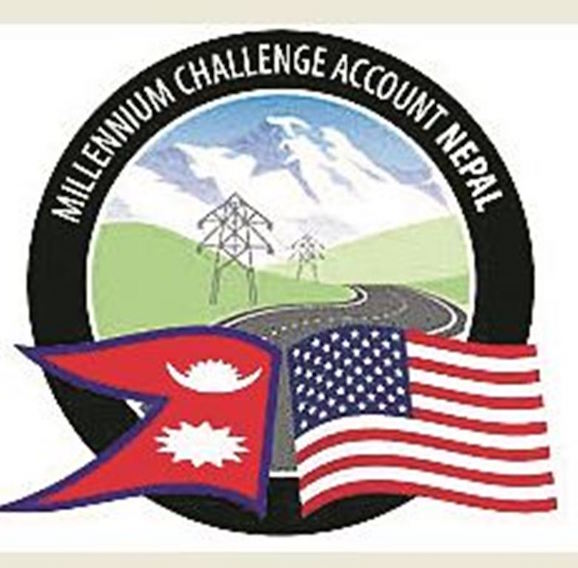
OR
Opinion


Dai Yonghong
Dai Yonghong, a professor, is the Director at Institute of the Bay of Bengal Studies,Shenzhen University. He is also the academic member at China Center for South Asia Studies at Sichuan University, China.news@myrepublica.com
The weather in Kathmandu is cool in autumn but the heated debate is going on about the Millennium Challenge Corporation (MCC) Compact which Nepal and the US signed in 2017. The MCC agreement was signed during the administration of Nepali Congress President Sher Bahadur Deuba, who is also the current Prime Minister of Nepal. Four years have passed but the agreement is still stuck in parliament.
According to the agreement, MCC provides $500 million in grants to help Nepal establish a 400KV transmission line and develop and upgrade some sections of the roads on the East-West Highway so that the economy of Nepal will develop rapidly, and Nepal and India will have better connectivity.
Clauses of controversies
In the beginning, almost no one paid attention to the clauses and conditions of the MCC Compact. Many thought it was another grant assistance delivered to Nepal from the US. However, when the US asked Nepali government to ratify it from parliament, people began to question. Scholars, critics and politicians began to discuss it. The legal experts have heavily criticized some of the provisions of the Compact. Many analysts in Nepal have clearly written that the MCC is linked with the Indo-Pacific Strategy, which the scholars have defined as the strategy of the US to counter the rise of China.
Three factors have raised controversies and doubts about the MCC in Nepal.
First, as some Nepali media reports have brought out, some of the provisions in the agreement are against the national interests and sovereignty of Nepal. Section 7.1 of the Compact reads: “The parties understand that this Compact, upon entry into force, will prevail over the domestic laws of Nepal.” Section 6.8 says “the Government agrees that MCC and the United States Government or any current or former officer or employee of MCC or the United States Government will be immune from the jurisdiction of all courts and tribunals of Nepal for any claim or loss arising out of activities or omissions under this Compact.”These provisions stand above the laws of Nepal. So the core concern among many political leaders as well as the citizens is that the MCC agreement should not be endorsed in the current form and some provisions need to be amended, if the MCC is to be given a go-ahead.
Second, Nepal is curious why the MCC agreement between the two countries needs parliamentary approval of Nepal and wonders if the agreement prevails over Nepal’s constitution. When Nepali Congress (NC) was in opposition, it asked K P Oli’s government to prioritize MCC and get it ratified by parliament as soon as possible. Now the NC leads the government but MCC has none of its priorities in its common minimum program document, which was recently unveiled. This shows that there are different opinions on MCC among coalition partners of this government.
Third, the key dispute among the major political parties in Nepal is whether the MCC is a part of the US-led Indo-Pacific Strategy. The Indo-Pacific Strategy is said to be the tool of the US to counter China’s Belt and Road Initiative (BRI). Nepal, as a friendly nation of China, does not want to join any alliance to damage relations with its friendly neighbors. Nepal has no intention to get involved in the great power game between China, theUS and any other countries. Nepal fears that once the MCC agreement gets approval, Nepal will be projected as a member of the Indo-Pacific Strategy. After all, it’s in the list of State Partnership Program inthe Indo-Pacific of US already.
MCC has become so debatable that a task force was formed by the K P Oli’s government to review and submit a report. The communist party leaders prepared the report and submitted it to the then PM Oli arguing that the agreement should be revised before adoption.
Moment of truth
Nepal expects the US to clarify the distinction between the MCC and its Indo-Pacific Strategy. The dispute over whether to approve the agreement or not within the then Nepal Communist Party (NCP) even exacerbated the polarization and split. Sri Lanka, another South Asian country,has refused to accept the MCC after the Experts’ Committee of Sri Lanka delivered the report to President Gotabaya Rajapaksa suggesting him not to accept it. Nepal may take a leaf from this report to understand the actual reasons for Sri Lanka to abandon the MCC.
Fatema Z Sumar, the vice-president of MCC is reported to be visiting Nepal soon. She is expected to hold deep discussions with Nepali government and political leaders to facilitate MCC’s passage from parliament. But the big question still remains: If the MCC is beneficial for Nepal and Nepalis as claimed by some officials, why have there been so many controversies?
As a good neighbor and a true friend of Nepal,China respects Nepal’s sovereignty, independence and territorial integrity, and wishes for Nepal’s economic development and happy life of people. If the recent debates in Nepal and controversies surrounding MCC are any indications, MCC might not serve that purpose. Instead, it has become a source of tensions among the political parties and cause of public resentment.
Development grant is channelized under the laws and the constitution of the country which receives it. This is what countries do everywhere.
All eyes are on Prime Minister Sher Bahadur Deuba. He is actively pushing forward the agreement for early approval and trying to persuade his coalition partners—Maoist Center, CPN (Unified Socialist) and even opposition CPN-UML—to support his cause. But they all have their reservations on MCC.
As an observer and a researcher of Nepali politics and development, I hope Nepal will put national sovereignty, security and welfare and benefits of Nepali people above all else before taking decision on this hugely controversial matter. Nepal is an independent sovereign country. Nepal and Nepali people have the right and wisdom to decide whether to accept or reject the MCC.
You May Like This

Nepal ratified MCC Compact in the face of China's 'disinformation campaign': US Envoy Nominee
KATHMANDU, July 15: The US Ambassador-nominee to Nepal Dean R. Thompson has claimed that Nepal's parliament ratified the $500 million... Read More...

US clarifies that MCC Compact is not part of any military strategy (With document)
KATHMANDU, September 9: The Millennium Challenge Corporation (MCC) has responded to the request of Nepal government to clarify some of... Read More...

MCC doesn’t have any military component: US
KATHMANDU, Jan 18: Amid misleading news going viral in several online media platforms that its implementation would pave the way... Read More...









Just In
- Heavy rainfall likely in Bagmati and Sudurpaschim provinces
- Bangladesh protest leaders taken from hospital by police
- Challenges Confronting the New Coalition
- NRB introduces cautiously flexible measures to address ongoing slowdown in various economic sectors
- Forced Covid-19 cremations: is it too late for redemption?
- NRB to provide collateral-free loans to foreign employment seekers
- NEB to publish Grade 12 results next week
- Body handover begins; Relatives remain dissatisfied with insurance, compensation amount








Leave A Comment